Java Virtual Threads
Reading my articles about Go concurrency a friend asked me whether one could something similar in Java.
Project Loom
Since the release JDK 21 Java has virtual threads1:
Thread.startVirtualThread(() -> {
System.out.println("Hello, world");
});As an equivalent to Go’s goroutines:
go func() {
fmt.Println("Hello, world")
}()A Simple Example
Like our experiments in Go, we implement2 a simple recursive calculation of the Fibonacci sequence:
| |
Then call it 1,000 times:
| |
Running this on our good old N5105 CPU gives us:
> bazel run //:try1
INFO: Running command line: bazel-bin/try1
*** Finished 1000 runs in 1.219s - avg 1.214ms, stddev 48.555µs
Which is even a little faster3 than our Go version. Nice.
So, let’s try a naïve approach to parallelize things:
| |
Resulting in:
> bazel run //:try2
INFO: Running command line: bazel-bin/try2
*** Finished 1000 runs in 279.364s - avg 279.346ms, stddev 54.647ms
4 Minutes and 20 Seconds is a little better that what Go did, but still much slower than our single-threaded solution.
Analyzing Flame Graphs
If we look at the flame graph of the single-threaded run:
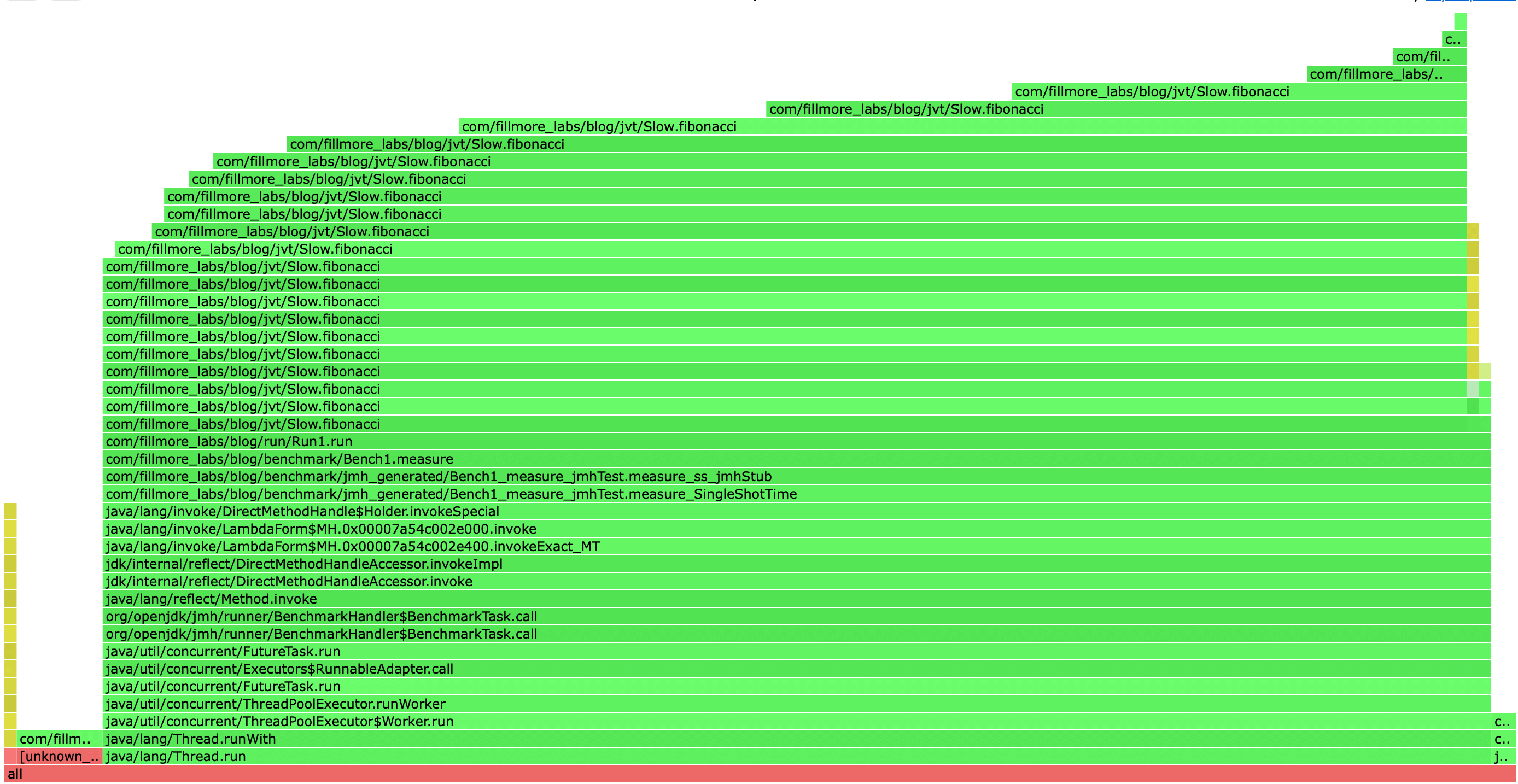
> bazel run //:bench1 -- -prof "async:output=flamegraph;direction=forward"
Iteration 1: 1220.789 ms/op
Benchmark Mode Cnt Score Error Units
Bench1.measure ss 1220.789 ms/op
We see a little time spent interpreting/compiling the program and mostly working on our Fibonacci implementation. Our naïve implementation looks like this:
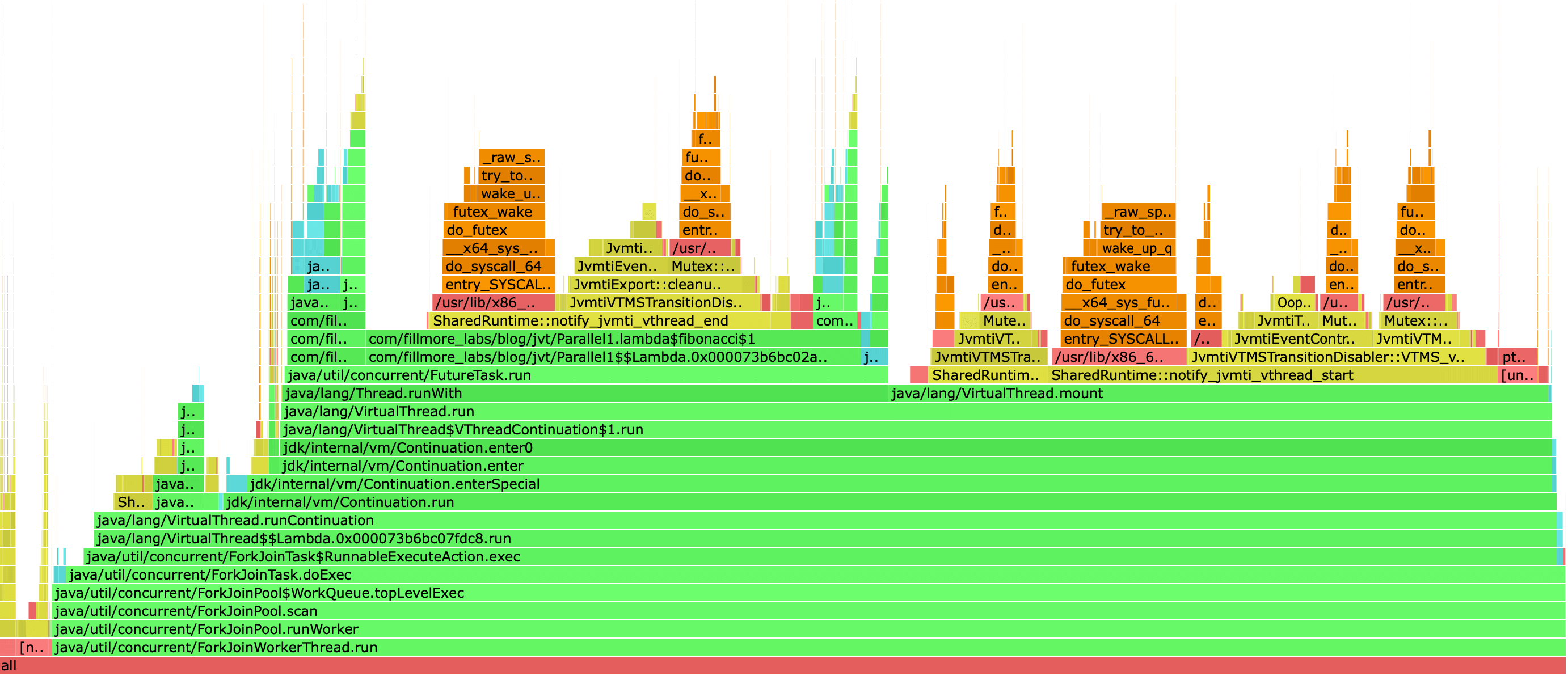
We spend a lot of time blocked on a Mutex in the
JVM Tool Interface, maybe the global
JvmtiThreadState_lock?
Other Approaches
Anyway, we are not here to debug the JVM, let’s try some other approaches.
| |
Sharing an ExecutorService and using the ‘original’ thread to do some work improves things:
> bazel run //:try3
INFO: Running command line: bazel-bin/try3
*** Finished 1000 runs in 179.452s - avg 179.426ms, stddev 41.363ms
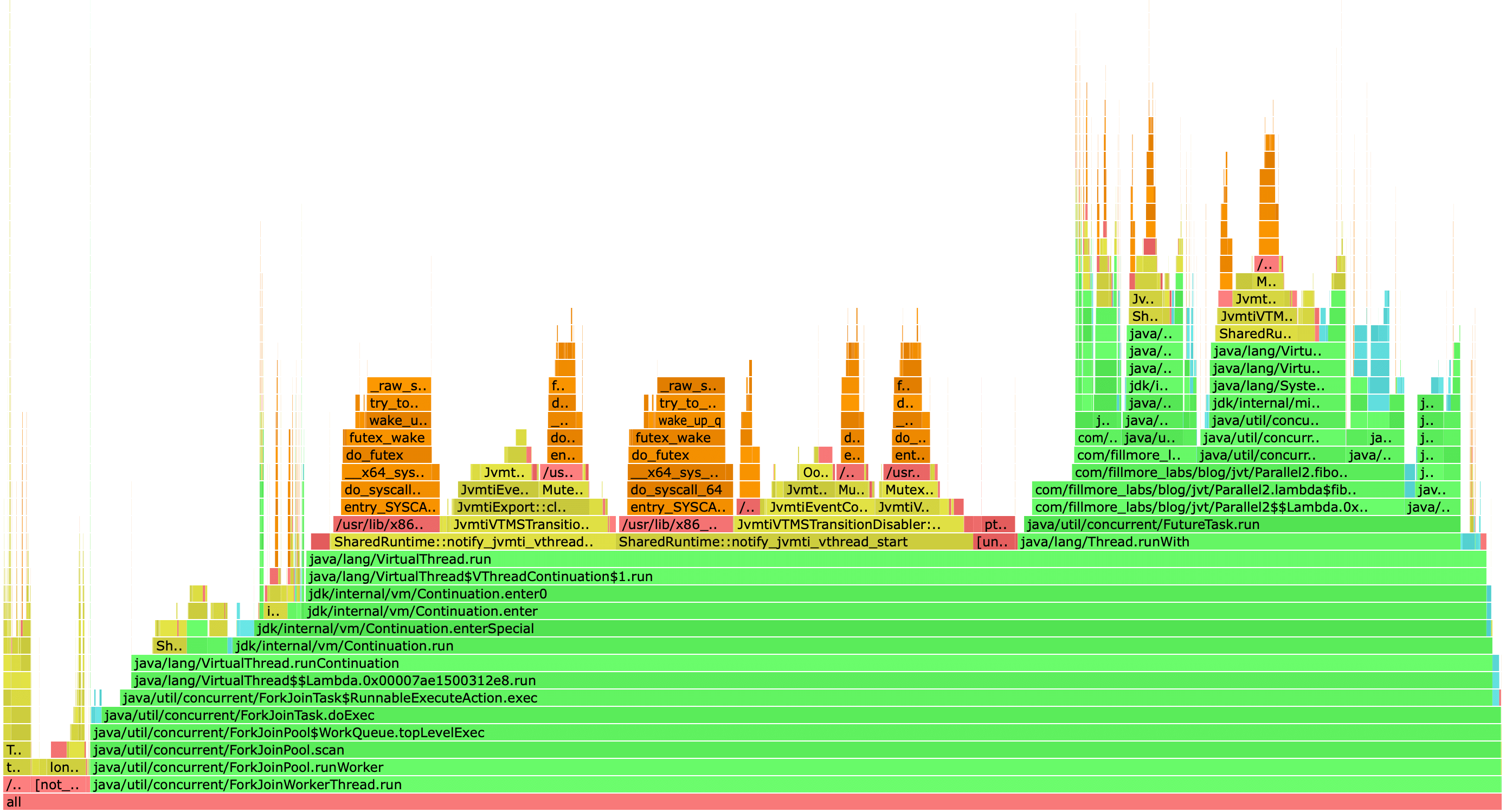
3 Minutes is faster (interestingly enough we loose to go here) - but still slower that the single-threaded version.
So, let’s move parallelization to the calling function:
| |
> bazel run //:try4
INFO: Running command line: bazel-bin/try4
*** Finished 1000 runs in 349.151ms - avg 164.952ms, stddev 88.675ms
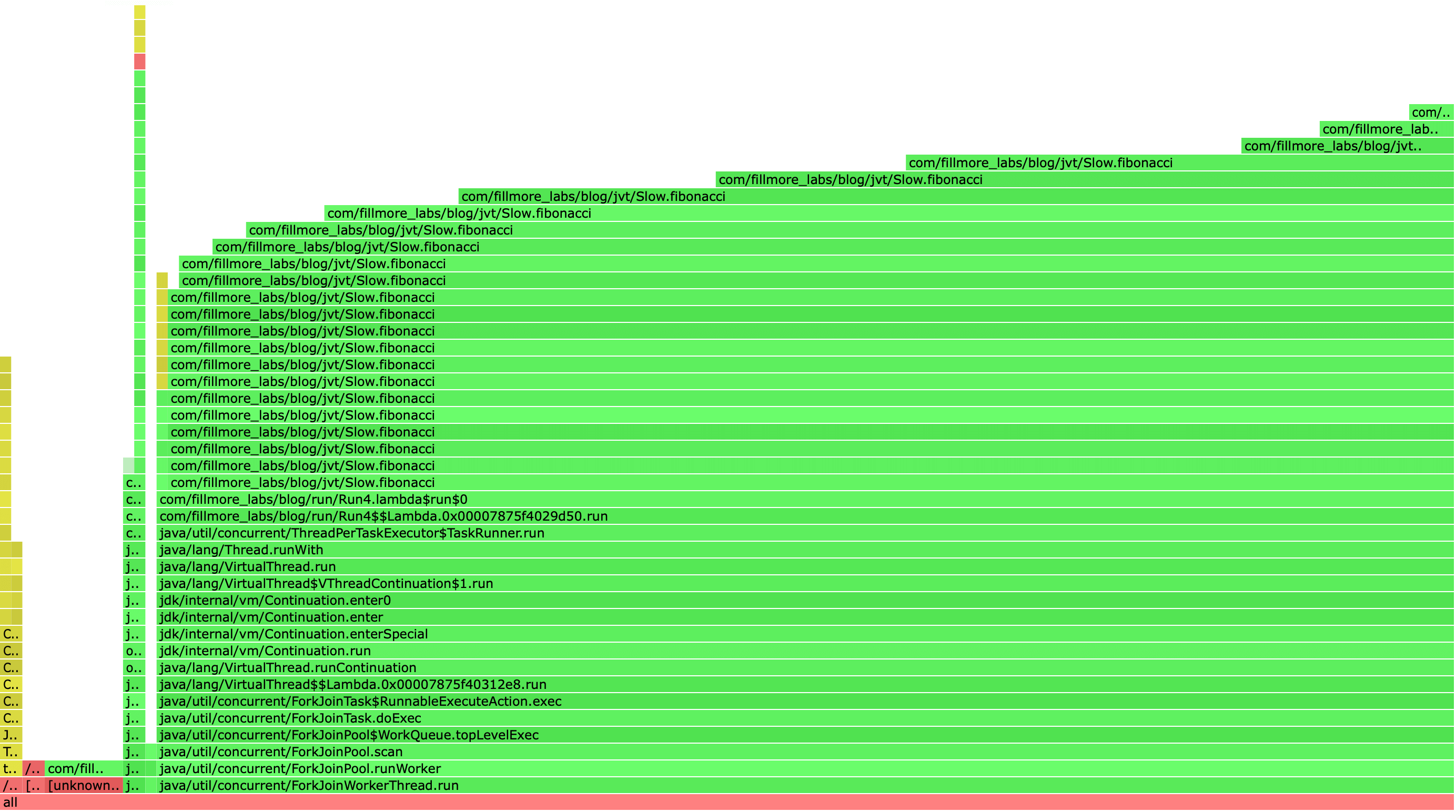
This has a similar flame graph than the single-threaded version and is approximately 3.5 times faster.
Improve Latency
Now let us limit the number of queued calls:
| |
> bazel run //:try5
INFO: Running command line: bazel-bin/try5
*** Finished 1000 runs in 359.420ms - avg 1.697ms, stddev 665.871µs
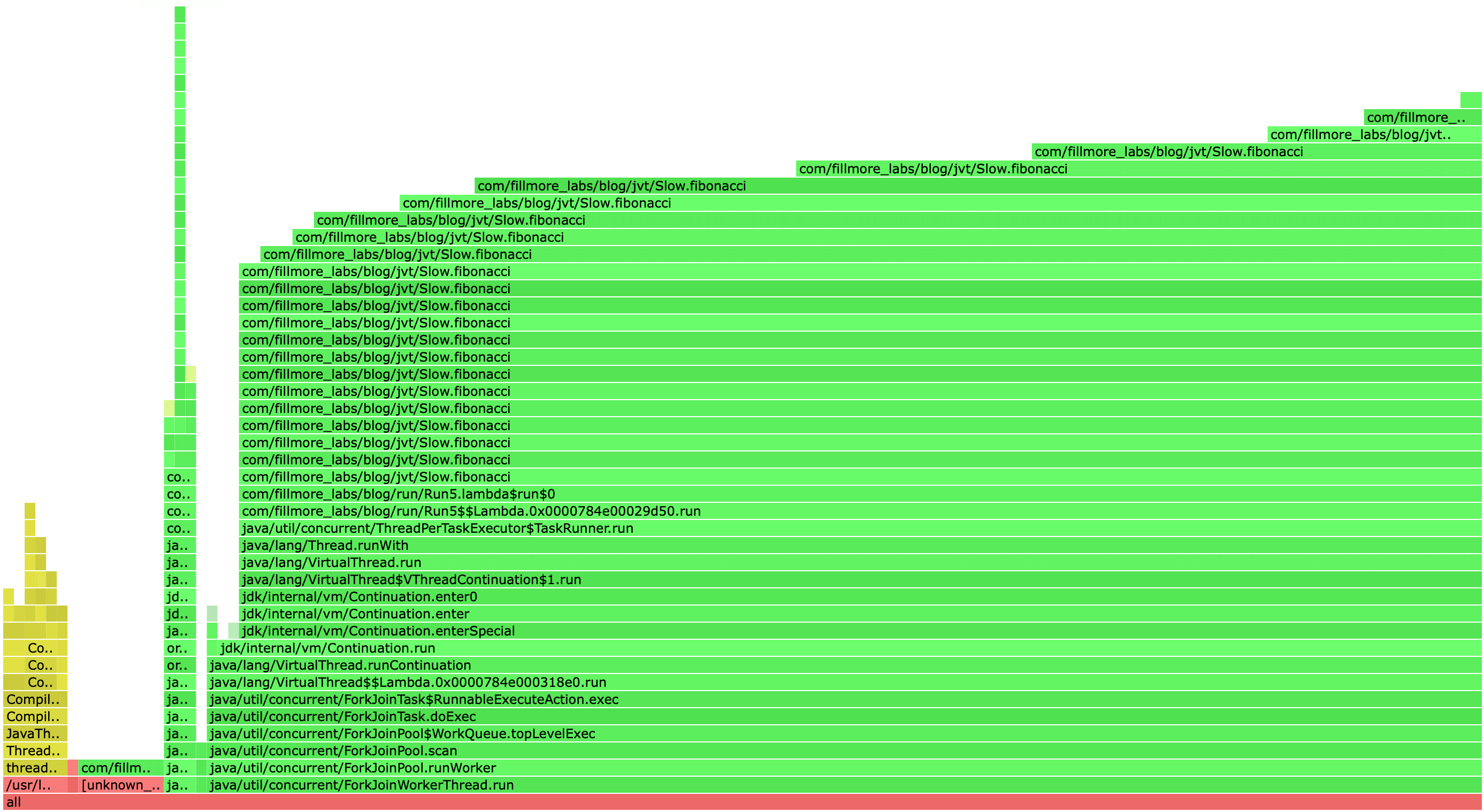
Which improves our latency from 165ms to 1.7ms.
Summary
Exercises on how many threads can be started on a certain machine are mostly boring - this metric primarily showcases the small initial stack size of virtual threads.
Seeing Java adopt virtual threads is exciting. However, it’s unlikely that Java code will resemble Go or Erlang soon. Developing correct, efficient concurrent code is much more than just replacing one threading model with another4, also there are fundamental differences in existing (standard) libraries.
… continued in part two.
Ron Pressler, Alan Bateman. 2023. Virtual Threads. In JDK Enhancement Proposals — March 2023 — JEP 444 — <openjdk.org/jeps/444> ↩︎
The code is available on GitHub at github.com/fillmore-labs/blog-javavirtualthreads. ↩︎
This isn’t a comparison of Go and Java, at least not in terms of performance. Java excels in benchmarks and repetitive tasks. ↩︎
Alan Bateman. 2023. The Challenges of Introducing Virtual Threads to the Java Platform - Project Loom — August 2023 — JVM Language Summit 2023 — <youtu.be/WsCJYQDPrrE?t=667> ↩︎